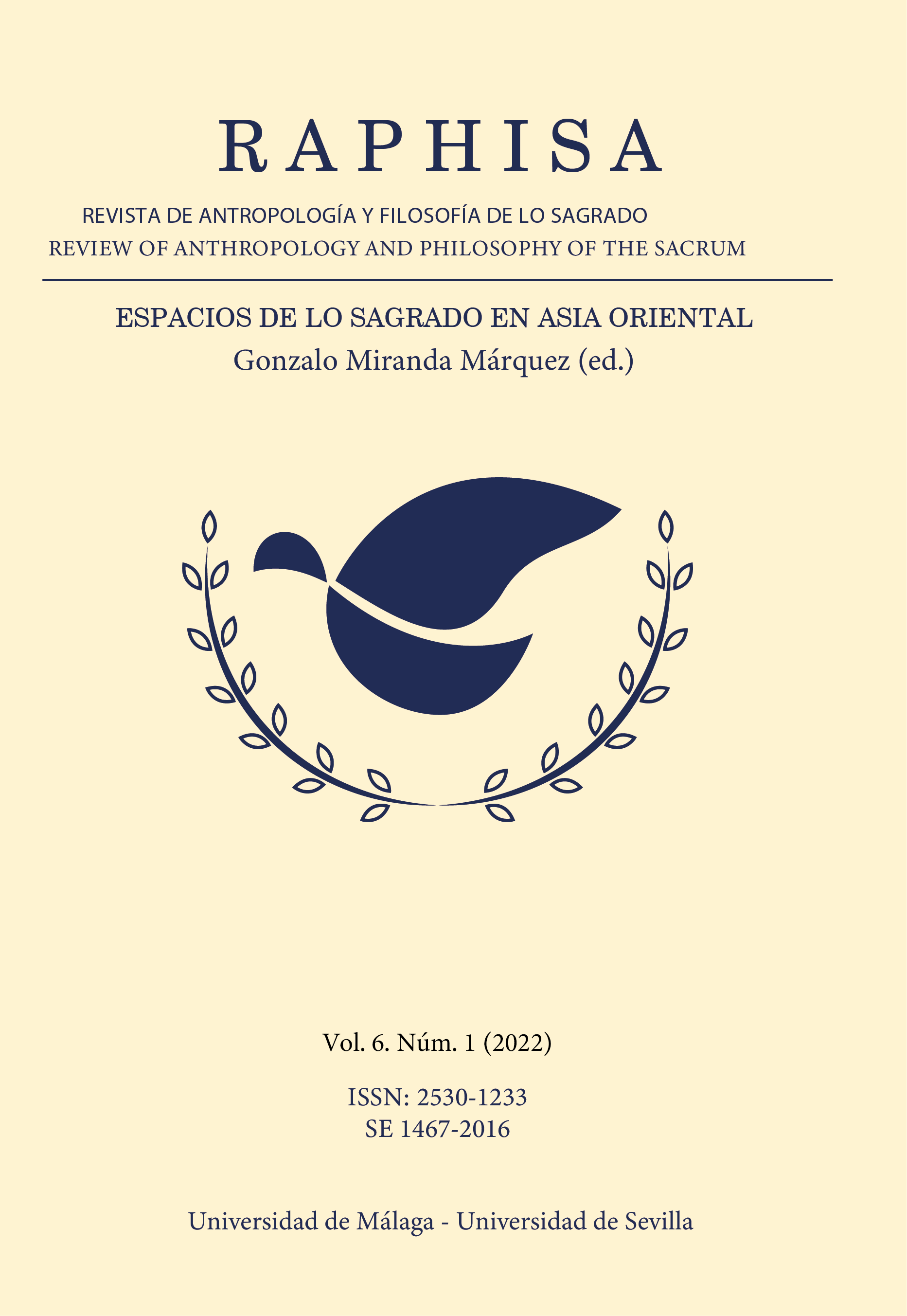Traditional Chinese gardens
the crystallization of culture
DOI:
https://doi.org/10.24310/Raphisa.2022.v7i1.14438Keywords:
Chinese garden, culture, philosophy, armony, symbolismAbstract
The art of traditional Chinese gardens is based on the rigorous and intelligent composition of architectural and natural elements in order to create a beautiful environment which integrates the different artistic disciplines harmoniously. Culture is the most important pillar that supports the conceptual basis of these gardens. Thus, it is reflected in the general design of the garden as much as in the details of the elements that shape them. We can say that traditional gardens hold within themselves all the millenary wisdom and culture of the Chinese people.
In this article we will analyze the traditional Chinese garden through the cultural exposures about the conception of the cosmos, the basis of harmony between man and nature, the occultation, and the symbolism of the different elements of the garden.
Downloads
Metrics
References
Almodóvar Melendo, J. M. y Xu, Y.: “Habitar la naturaleza en armonía con el universo. Metafísica, geometría cósmica y orden social en la tradición arquitectónica china” en Araucaria, 35 (2016), pp.151-177. URL: https://revistascientificas.us.es/index.php/araucaria/article/view/2670
Cáo Xùn ?? : “Breve discusión sobre el desarrollo y evolución del arte de montañas artificiales de jardines antiguos chinos”???????????????????[Lüèlùn w?guó g?dài yuánlín diésh?n yìshù de f?zh?n y?nbiàn]. Historia y teoría arquitectónica ???????, 1980, vol. 01, pp.74-83.
Chén Zhí ??: Notas y correcciones del Tratado de los elementos superfluos???????[Zhàngwù zhì jiàozhù] autor original Wén Zhènh?ng ???. S?zh?u: Editorial de ciencia y tecnología ?????????,1984.
J? Yuèshí ???: La arquitectura china y la cultura del jardín???????????[Zh?ngguó jiànzhú y? yuánlín wénhuà]. Shàngh?i: Shanghai People Publishing House ???????, 2014.
Lao Tse: Tao Te King. Biblioteca Digital, Instituto Latinoamericano de la Comunicación Educativa ILCE, recuperado el 5 de marzo de 2022, de http://bibliotecadigital.ilce.edu.mx/Colecciones/ObrasClasicas/_docs/TaoTeKing_LaoTse.pdf
Lóu Qìngx? ???: Jardines chinos ??????[Zh?ngguó yuánlín]. B?ij?ng: China Intercontinental Press ???????, 2003.
Liu Xin ??: Notas diversas en la Capital de Xihan??????[X?j?ng zájì]. Recuperado el 07 de marzo de 2022, de https://www.shidaquan.com/ju6429488
Mezcua López, A. J.: Cultura del paisaje en la China tradicional: arqueología y orígenes del concepto de paisaje. Granada: Editorial Comares, 2009.
Palmer Martín: The book of Chuang Tzu. Penguin Books, 2006, recuperado el 6 de marzo de 2022, de https://terebess.hu/english/tao/ChuangTzu-palmer.pdf
P?n G?x? ???: La historia de la arquitectura clásica de China ?????????[Zh?ngguó g?dài jiànzhù sh?] Volumen 4 La arquitectura de Yuán y Míng ??????[Yuán Míng jiànzhù]. B?ij?ng: China Architecture & Building Press ?????????, 2001.
Preciado Idoeta, I.: Zhuang Zi. Barcelona: Editorial Kairós, 1996.
Vilá, J.: Yijing. El libro de los cambios. Vilaür: Atalanta, 2013.
Wèi Ji?zàn ???: Historia de los jardines clásicos de Suzhou ?????????[S?zh?u g?di?n yuánlín sh?]. Shàngh?i: Librería Sanlian ??????, 2005.
Xu, Y. y Almodóvar Melendo, J.M.: La Forja de los jardines. Interpretación del tratado más antiguo sobre el jardín clásico chino. Granada: Comares, 2019.
Xu Y. y Almodívar Melendo J.M.: “Naturaleza, pensamiento y cultura en el jardín chino. Análisis holístico del Yuanye” en Thémata 61 (2020), pp. 103-120. URL: https://institucional.us.es/revistas/themata/61/6_art_Ntza.pdf
Zh?u 1990. Wéiquán ???: Historia de los jardines tradicionales de China?????????[Zh?ngguó g?di?n yuánlín sh?]. B?ij?ng: Editorial de la Universidad Qinghua ???????.
Downloads
Published
How to Cite
Issue
Section
License
License permitted by the journal: Public Domain. Authors retain the copyright and full publishing rights without restrictions.






